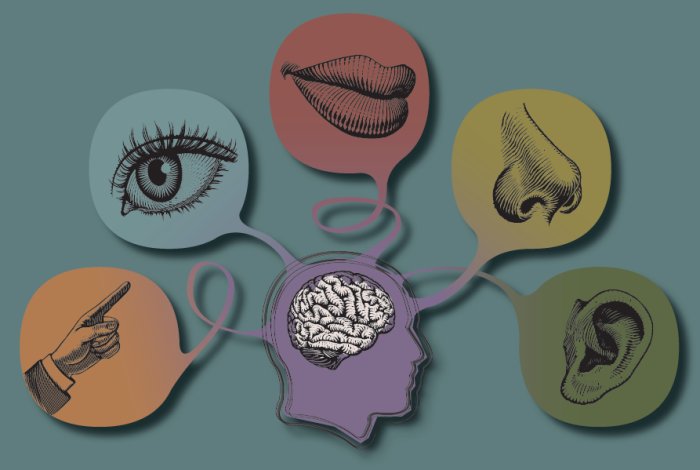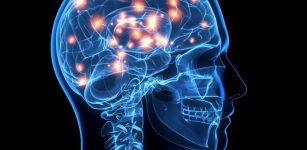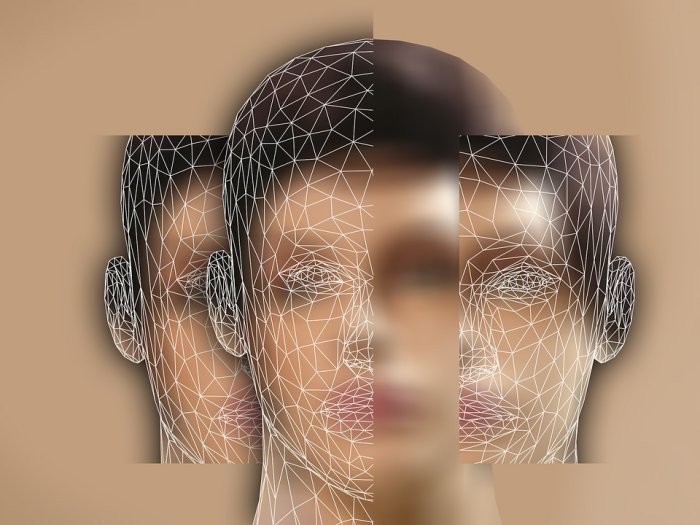Humans Have Between 9 to 21 Senses In Total – Aristotle Was Wrong To Claim We Have Only Five Senses
Cynthia McKanzie – MessageToEagle.com – Have you ever heard the expression someone has a sixth sense? Why limit our senses to a sixth sense? Actually, according to scientists, humans can have between 9 to 21 senses in total!
The idea that humans have only five senses is a pure myth. Aristotle (384 BC – 322 BC), an ancient Greek philosopher and scientist is credited with the traditional classification of the five senses organs: sight, smell, taste, touch, and hearing. Aristotle was wrong, but the myth of five senses persists.

Currently, there is no concrete definition of what constitutes a sense, but according to most researchers, a sense is a feeling or perception produced through the organs of touch, taste, etc., or resulting from a particular condition of some part of the body. In order for us to have a sense, there needs to be a sensor. Each sensor is tuned to one specific sensation. For example, there are sensors in your eyes that can detect light.
The five senses mentioned by Aristotle are what we call traditional senses, but there are also additional senses such as:
Equilibrioception: Simply known as the sense of balance. It helps prevent humans and animals from falling over when standing or moving.
Proprioception: This is the perception of one’s body in space or the body’s position. Even if a person is blindfolded, he or she knows through proprioception if an arm is above the head or hanging by the side of the body.
Thermoception is the sense of heat. Specialized cellular sense receptors (thermoreceptors) allow the detection of cold and hot temperatures. It means we know which object is hot without touching it.
Nociception is the ability to feel pain.
Magnetoception is the ability to detect magnetic fields. Unlike birds, humans do not have a strong sense of magnetoception, but we still have a certain orientation when detecting the Earth’s magnetic field.
See also:
Mysteries Of The Mind And Brain
Bizarre Case Of Never-Ending Déjà Vu: Man Trapped In An Eternal Time Loop
Amazing Memory – People Who Remember Every Day Of Their Life
Can Parallel Universes Explain The Déjà Vu Phenomenon?
It Is Possible To Erase Fear From Your Brain
We also have stretch receptors. These are found in such places as the lungs, bladder, stomach, blood vessels, and the gastrointestinal tract.
Our chemoreceptors help us to detect chemicals in the environment.
Familiarity is part of our recognition memory. A strong sense of familiarity can occur without any recollection, for example in cases of deja vu.
Hunger and thirst are also senses. The sense of time is still debated, but researchers have discovered humans have an astonishing accurate sense of time, particularly when younger.
Other senses are pressure, itch, and muscle tension.
Many people would also say that intuition is also a sense, but there is still isn’t enough conclusive evidence to add it to our sense list. However, more and more scientists are becoming convinced some humans are able to acquire knowledge without proof, evidence, or conscious reasoning.
Scientists who study the phenomenon say it’s a very real ability that can be identified in lab experiments and visualized on brain scans.
What is certain is that humans certainly do have more than five senses.
Written by Cynthia McKanzie – MessageToEagle.com Staff Writer
Copyright © MessageToEagle.com All rights reserved. This material may not be published, broadcast, rewritten or redistributed in whole or part without the express written permission of MessageToEagle.com
Expand for referencesRelated Posts
-
 Male And Female Brains Are Different: Men Are More Selfish And Women Much More Generous
No Comments | Nov 21, 2017
Male And Female Brains Are Different: Men Are More Selfish And Women Much More Generous
No Comments | Nov 21, 2017 -
 Gravity Travels At The Speed Of Light – Confirmed For The First Time Ever
No Comments | Dec 11, 2017
Gravity Travels At The Speed Of Light – Confirmed For The First Time Ever
No Comments | Dec 11, 2017 -
 The Day When The Sun Did Not Come Out – Bizarre Event In 1870, New England
No Comments | Oct 1, 2015
The Day When The Sun Did Not Come Out – Bizarre Event In 1870, New England
No Comments | Oct 1, 2015 -
 Mystery Of The Naga Fireballs At Mekong River
No Comments | Feb 12, 2016
Mystery Of The Naga Fireballs At Mekong River
No Comments | Feb 12, 2016 -
 Why Do Chameleons Change Colors In Unusual Ways?
No Comments | Jul 17, 2016
Why Do Chameleons Change Colors In Unusual Ways?
No Comments | Jul 17, 2016 -
 René Descartes’ Evil Demon Argument – Can Our Senses Deceive Us?
No Comments | Feb 18, 2019
René Descartes’ Evil Demon Argument – Can Our Senses Deceive Us?
No Comments | Feb 18, 2019 -
 Where Do Diamonds Come From?
No Comments | Jun 3, 2016
Where Do Diamonds Come From?
No Comments | Jun 3, 2016 -
 Mysterious Ancient Ghost City Of Bhangarh And The Curse Of The Holy “Magician”
No Comments | Sep 22, 2015
Mysterious Ancient Ghost City Of Bhangarh And The Curse Of The Holy “Magician”
No Comments | Sep 22, 2015 -
 What Is The Human Genome And How Big Is It?
No Comments | Jan 31, 2016
What Is The Human Genome And How Big Is It?
No Comments | Jan 31, 2016 -
 Unexplained Brain Activity Detected In Patient Declared Clinically Dead
No Comments | Mar 13, 2017
Unexplained Brain Activity Detected In Patient Declared Clinically Dead
No Comments | Mar 13, 2017

